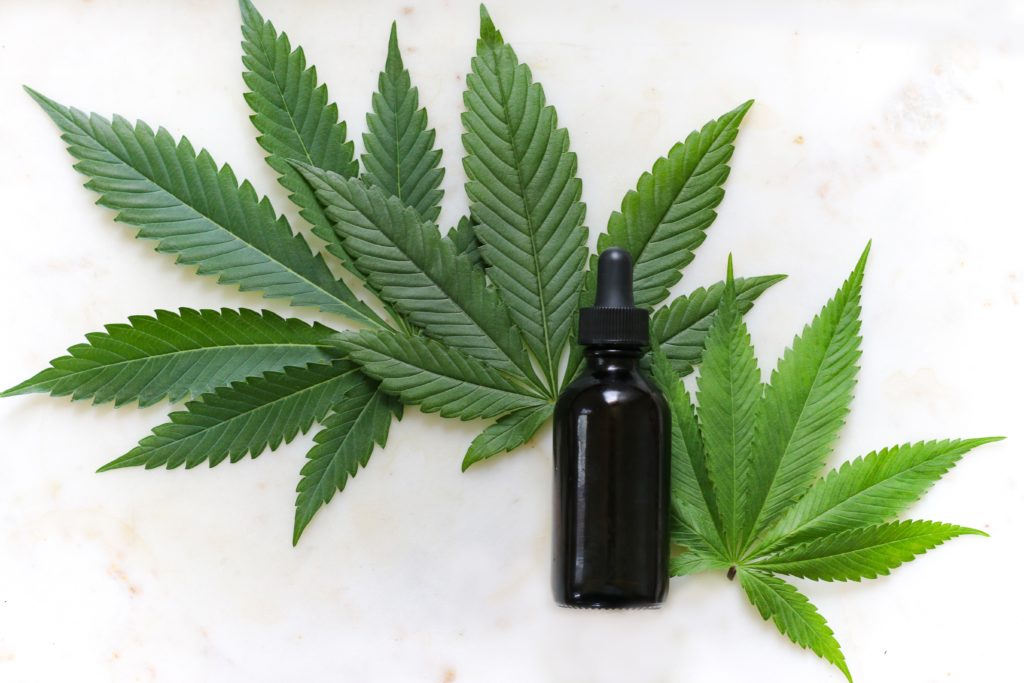All fields are required
Posted in Food Safety on September 3, 2019

As the controversy rages on over the legalization of marijuana, new issues arise. Not with the law itself, but with the already shaky ground of safety. New products pop onto the scene and while everyone believes this is progress, it may only cause a set-back to the industry. This is why many are calling for a standardization already and it may not be a bad idea. Did you even know that there could be issues with CBD oil and dangerous pathogens? Yes! CBD Oil and Salmonella!
There is plenty of research and lots of money being put into this new area of legalization. There is one thing we do know for sure though: safety has fallen by the wayside in the in term.
The latest comes from research found in the Journal of the American Medical Association that claims 69 percent of untested CBD products are falling short on their claims. Let’s take a look at the research, see what claims are being made, and how this is affecting food safety.
In the past few years, numerous studies have been done on the medical benefits of CBD oil. For those not that familiar with what CBD oil is, there are a lot of well researched articles out there. To get you started, this one talks more about the medical side of CBD and this one focuses more on other benefits it may have.
It is important to know that CBD oil is the part of marijuana that DOES NOT cause a high. The high inducing part of marijuana is called THC. Here is a more in depth explanation between the two. We are strictly talking about the medial side of this subject.
What the research found was that about 70 percent of labels from various manufacturers are incorrect. When we use the word incorrect in this concept; it was found the labels are under and over labeled. Either way, this is causing serious medical dangers.
The problem gets bigger because CBD labeling is not regulated so the companies do not have to answer for their wrongdoing. Without regulations, the oil can contain anything they want. For people trying to use CBD oil to help with medical issues, this can lead to more or worse conditions.
This is a huge issue in both the medical and cannabis industry but you might be wondering what this has to do with food safety. We could discuss this for quite a while but that is a valid question. The crossover into food safety comes from the tests that are being run to check for what other types of material are in CBD oil that are not supposed to be there. When certain oils are tested, researchers have found mold, bacteria, mildew, and yeast. Let’s focus on one: bacteria.
E. coli and Salmonella are bacteria. While research is still in its early stages, some oils have been found to have traces of these bacteria. So now, not only do we have to be concerned with these bacteria in our food but in CBD oil.
If you are using CBD oil, or are thinking about it, do the research first. There are many reputable companies but twice as more that are not. I will say this: I think there is some validity to the medical properties but choose for yourself.
Salmonella has been in the news a lot lately due to several outbreaks. While it is difficult to control outbreaks from restaurants, there is still a lot we can do inside our homes to prevent bacteria from getting into our food. Now considerer, there is a secondary source where bacteria can come from and this one is less controlled.
The CDC estimates Salmonella causes 1.2 million illnesses, 23,000 hospitalizations, and 450 deaths in the United States every year. (source) Untreated, Salmonella can lead to worse complications but for the most part is treatable and only lasts a week or so. Symptoms include:
The important thing to remember here is if symptoms present themselves, getting to the doctor is not something to wait around on. Doctors can run tests to confirm what is actually making you sick in the event it could be something else. Different foodborne illnesses can have the same symptoms so tests are the best idea.
When we talk about prevention, the CDC has a list of the best tips out there:
Prevention begins in the kitchen but doesn’t stop there. The Four C’s to food safety are tips that I live by now. It took me a while to conform to all of them but once I did I believe my cooking has made my family safer.
As a food safety writer and follower, I find it troubling and frustrating there is now another area we need to concern ourselves with. CBD oil, while still a new and upcoming medical industry, might have the potential to change lives. Whatever your opinions on the matter, I believe it important to keep up with new news and research as it becomes available.
While we wait to see where this new research is heading, keeping our families safe should still be at the front of our dinner practices. With each meal comes certain food safety pitfalls and planning on how to avoid them can save us a lot of time.
I plan on bringing more information on this subject as it is available. Stay tuned and stay safe.
By: Dwight Spencer, Contributing Writer (Non-Lawyer)